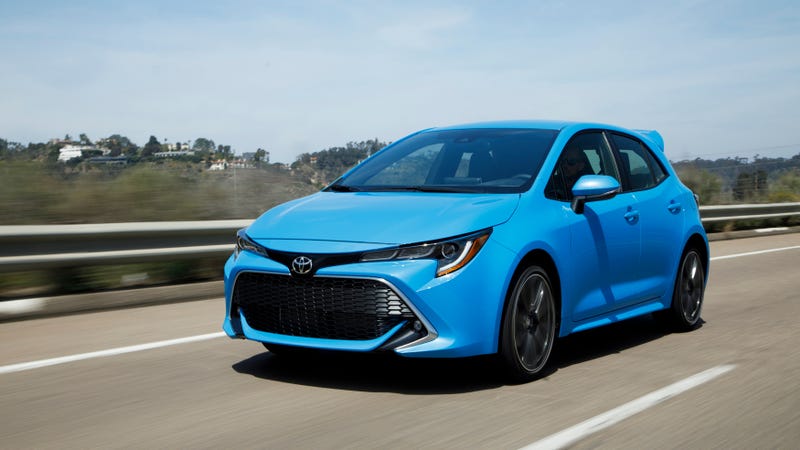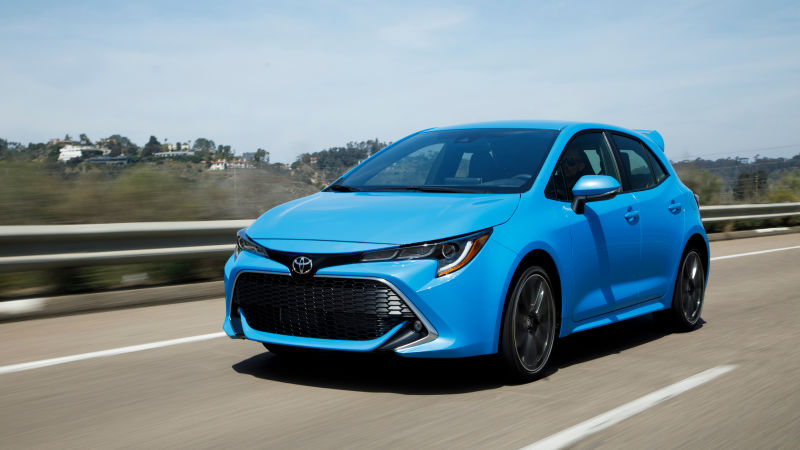
Because buyers are generally trash at forward-thinking and looking ahead, 2019’s overdue downturn will probably yield many of the same things that the last recession from 10 years ago did: A sweeping and dramatic switch from buying crossovers and SUVs to lining up to buy compacts and economy cars.
Why do I think a recession is coming? Why, in the face of terrifically low unemployment and incredibly high consumer confidence, would such a thing even be on my mind? For one, because consumer debt, especially car debt, is at an all-time high. We’re facing a trade war that affects our exports and our domestic production. And there’s a cooling housing sector, according to the The Atlantic. None of these things are great long-term.
And should gas prices spike again, there’s just no way that filling up those big trucks and SUVs is sustainable—or affordable. Plus, the big cars are generally much more expensive to buy or lease than the smaller ones. Buyers who are strapped for cash won’t be looking at something big and pricey.
In 2008, we saw demand for cars like the Toyota Prius spike. A post on HybridCars.com reported that, due to the high cost of fuel, the hybrid was suddenly so popular people should expect long waiting lists for it. From the story:
Customers should expect long waiting lists for the Prius, and in some cases, big dealer premiums, for the rest of 2008.
“Unless Toyota sends a lot more cars, we’re going to see Prius wait lists spin out again to about six months,” said Toby Parks, sales manager at Toyota of Berkeley, Calif., in an interview with HybridCars.com.
Advertisement
It’s worth noting, however, that the high gas prices that accompanied the Great Recession were not caused by it. But right now, if instabilities and crises with oil-rich countries like Venezuela, Saudi Arabia and Iran (as well as our own Trump issues) resulted in lofty gas prices once again during a recession, I wouldn’t be surprised.
So, popularity for the Prius will soon rise again. And not just the Prius. Buyers will also flock to compact cars like the Toyota Corolla, Toyota Yaris, Nissan Versa, Nissan Sentra, Ford Fiesta and Chevy Sonic. Manufacturers that still offer cheap, economy cars will benefit. Manufacturers that did away with the affordable and efficient cars, like Fiat Chrysler, will have a harder time profiting.
A diverse offering is what ultimately will help when people buy according to the economy. Sure, it might not be as immediately profitable as having an entire lineup of what’s currently hot, but at least the options are there for when people need them. Then you won’t be scrambling to introduce new models to your line when you need it.
Advertisement
In fact, there’s even a Chinese idiom for this: “临时抱佛脚” which translates literally to “clasp the Buddha’s foot in an emergency.” It’s about doing things at the last minute. Like looking at your crossover-heavy lineup in a recession, seeing no compacts and going dammit. Time to add some economy cars?
One thing that could be different this time around is a surge (pardon the pun) of electric car sales. Automakers have a ton of new EVs coming out, largely to take advantage of the ultra-important Chinese market but still crucial here, and there’s no telling whether people will buy them unless gas prices shoot way up. Then again, thanks to a current lack of scale, many of those EVs are luxury cars or are more expensive than their gasoline counterparts. That market’s growth may be a tricky one.
But personally, I’m looking forward to the compact uprising. I’m tired of seeing a massive SUV with just one occupant inside meandering its way to the mall. The new Corolla is a good car, comes with a manual and as a hatchback. I’d much rather have those on the road than another Escalade.













